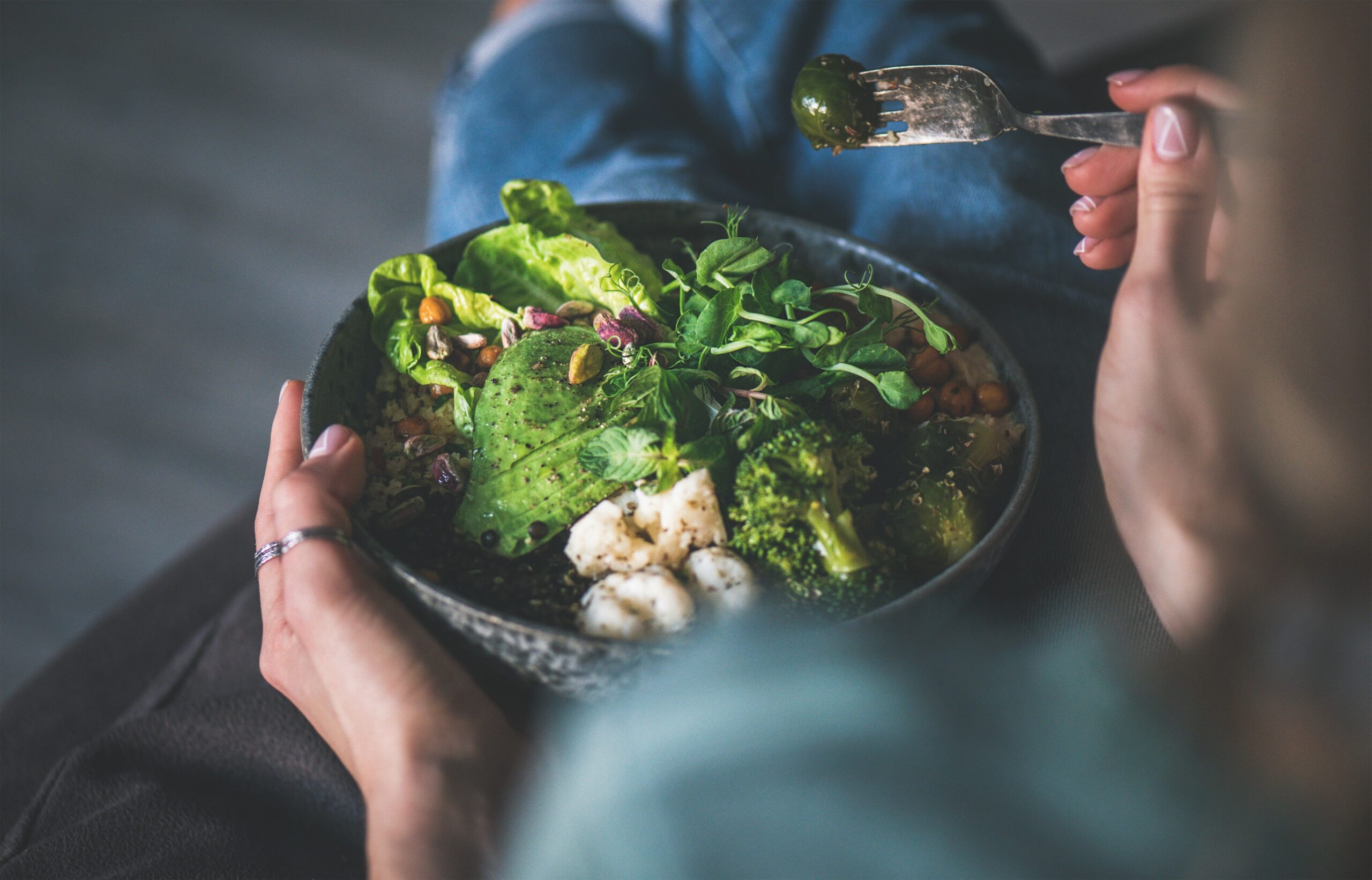Are you on a nutrition kick and getting to grips with various vitamins and supplements? Read on for a fool-proof guide to vitamin K.
What is vitamin K?
Vitamin K isn’t actually a single vitamin – rather, it’s a group of vitamins that work in a similar way. These vitamins play an important role in blood clotting, and helping wounds heal.
The two types of vitamin K most commonly found in our diet are K1 and K2 – of the two, K1 is more common. K1 is found in leafy green vegetables. K2 is found in animal products and fermented foods.
What does vitamin K do?
Scientists are still investigating what vitamin K does in the body, what its effects are, and how well it is absorbed by the body in its various forms. We think that its main role is to activate proteins that help with blood clotting. However, there’s also some evidence that vitamin K helps to maintain heart and bone health.
Who should have vitamin K?
Everyone should have vitamin K in their diet as it’s an essential nutrient.
However, it’s a good idea to speak to your pharmacist or GP if you’re thinking about taking vitamin K supplements, or if you’re planning on making a big change to your diet. Vitamin K can negatively interact with certain medications, including warfarin, a type of blood thinner, and orlistat, a weight loss treatment.
What foods are high in vitamin K?
There are a few different foods that contain vitamin K. The best food sources for vitamin K are green, leafy vegetables like kale, spinach, broccoli, and brussels sprouts.
Vitamin K is also found in smaller amounts in vegetable oils and cereal grains, as well as animal products like pork, chicken, cheese, and egg yolks. Larger amounts are found in some specific types of fermented food, including natto, a Japanese food made from fermented soybeans.
How much vitamin K do I need?
Vitamin K is unique as an essential nutrient, as the amount you need will depend upon your size.
The NHS recommends that adults need one microgram (mcg) of vitamin K per kilogram of their bodyweight each day – so if you weight 60kg, you should aim for 60mcg. However, any vitamin K you’ve not used up is stored in your liver, so it doesn’t matter if you don’t manage to eat some every single day.
Regardless of your weight, you should be able to get your plenty of vitamin K through your diet, simply by eating some leafy, green vegetables a few times a week.
To give you an idea of how easy it is to get vitamin K:
- One cup of raw spinach contains 145mcg
- Half a cup of chopped, boiled broccoli contains 110mcg
- Half a cup of raw blueberries contains 14mcg
- One large hard-boiled egg contains 4mcg
An added benefit of eating these kinds of foods is that they’re rich in other essential vitamins and minerals. Broccoli contains vitamin C, folate, and iron, and is also a good source of fibre and plant-based protein.
Tips for getting more vitamin K into your diet
If you’re not a fan of leafy, green vegetables, try these simple tips to get more in your daily meals:
- Blend up broccoli in a homemade veggie soup
- Throw some kale into a stir fry
- Make green salads more exciting by adding sliced chicken, avocado, and a yummy homemade salad dressing
- Add some frozen spinach to your morning smoothie
What happens if I take too much vitamin K?
Not much is known about the effects of vitamin K when it’s consumed in large amounts, but it’s thought to have a low potential for toxicity.
If you eat a healthy, varied and balanced diet, you won’t be at risk of having too much of any one vitamin or mineral. If you decide to take vitamin K supplements, the NHS recommends taking no more than 1 milligram (mg) (1,000 micrograms) each day.
Where can I get vitamin K supplements?
You can get vitamin K supplements from high street pharmacies and health food shops. Just make sure you speak to a healthcare professional before you start taking them, and remember to choose one that doesn’t contain too high a dose – no more than 1mg (or 1,000mcg) of vitamin K.
##product-carousel:nutri-within-100ug-vitamin-k-365-tablets,lloydspharmacy-vitamin-k-200µg,nutri-within-multivitamins-and-minerals-365-tablets,betteryou-vitamin-k2-oral-spray-25ml,solgar®-formula-vm-prime-for-women-90-tablets,vitabiotics-wellwoman-plus-56-tablets,betteryou-dlux-vitamin-d-and-k2-oral-spray-12ml##
References
www.nhs.uk/conditions/vitamins-and-minerals/vitamin-k
www.healthline.com/nutrition/vitamin-k1-vs-k2
www.nhs.uk/medicines/warfarin
https://ods.od.nih.gov/factsheets/VitaminK-HealthProfessional
www.healthline.com/nutrition/foods/broccoli
Source link

Leave a Reply